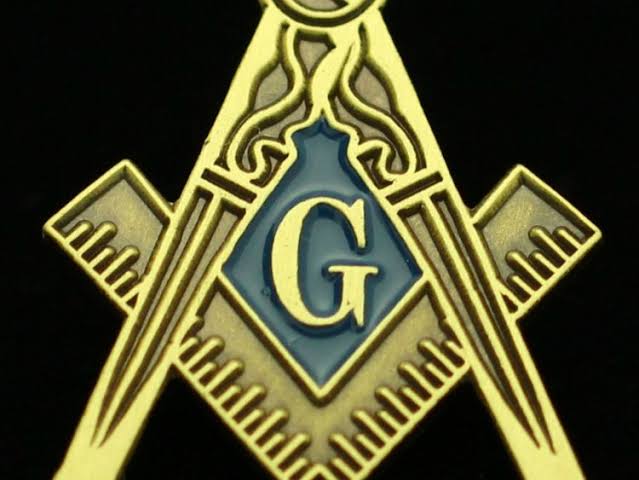The Origins of Secret Societies
.jpg)
I have been into information research related to what may be going on in the world for over 10 years. This has included aliens, secret societies and other ideas dismissively labeled as "conspiracy theories". There are many people who claim to be insiders of various secret societies, and the person going by the name Donald Marshall is one of them.
What they say may or may not be true. We only know of the world we are exposed to, and there is a whole other world (so-to-speak) going on in the dark shadows of our societies. The accounts of Donald Marshall don't stand alone.
Before I talk about influential and powerful secret societies acting as a "hidden hand" of influence in world history (and other aspects of the world that are possibly going) I want to try to explain -- for people who are unfamiliar with this topic -- how secret societies could have been formed and how they held power to begin with. Let me know if you have a likely more accurate origin for how secret societies developed.
.jpg)
Secret Society Origins
Where do secret societies come from? Imagine a time in history when there was only basic means of survival. There wasn't the cornucopia of jobs and skills available today to work for money and survival. But as human knowledge progressed, new forms of obtaining one's daily bread were discovered and utilized.
Crafts and craftsmen became skilled in certain areas of knowledge, such as building techniques like masonry. The knowledge of a trade was a means of survival. Someone's whole life depended on them getting work in their trade. Production techniques in various areas of knowledge were exclusively passed down to others in order to keep or hide that knowledge from competitors.
Secret knowledge became the chief capital of value in life. Some would pray to gods for favor in their lives. A warrior to win a war, a farmer to receive favorable harvest, but the craftsman didn't need to worship an imagined god. Knowledge was the new method of divine revelation in order to receive a bountiful life.
Crafts and craftsmen then formed into castes and closed guilds of secret knowledge. Occulting knowledge happens in the presence of competition and deep secrecy. But old beliefs die hard, and persist. The old gods re kept alive by the religions of the ancestors.
Secret revelations become a belief that are part of the hidden mystery traditions like the Kabala and Gnosticism. Gnosticism is rooted in the word knowledge. Other traditions include Zoroastrianism, the Catharism and Hermeticism. Notethat Hermiticsm became popular in the middle ages among craftsmen and alchemists.
With knowledge comes power. The knowledge of crafts and other things allowed some people to hold power in a society to be able to do things others couldn't because they didn't have that knowledge. If you needed something done, certain people had knowledge that you didn't and they got paid to do what only they knew how to do. There were not educational institutions like we have now. Survival was harder, and keeping knowledge in a closed group provided an economic survivability advantage.
Cities are first created by people who settle in an area. People need to be able to do things to make settlements grow. Knowledge is required to expand the prosperity of an area. People with knowledge make that happen. Colonies prospered with craftsmen who were able to grow a settlement's infrastructures and economy beyond a "natural economy" of local producers exchanging among themselves for sustenance.
Merchants provided an important role as sellers of goods, be it local or in more rare exotic luxury items. The demand for goods grows as more people are in an area, and merchants become more successful businessmen. Trade routes appear,and different currencies come into play. Bookkeeping developed to keep track of various trades and business trips. The financial foundations of banking develops so that people don't need to travel with their money on them as cash is deposited in one location and can be retrieved in another.
Those who had the knowledge of numbers and math held economic power. Those who had knowledge of crafting products to build exquisite furniture or extravagant buildings have economic power as well. These trades and skills were not available to everyone to learn as can be done in our relatively modern times. Even being a literate person who could read was not common, let alone write. Some people were employed and progressed well in the hierarchy of society because of the knowledge they possessed.
Despite the ever-present centralized governing rule of monarchies and the like, the power of knowledge meant you could survival and thrive while others toiled for crumbs. Greater wealth and freedom was afforded with being a person of knowledge and skill. Keeping that knowledge secret was motivated by self-interest. to maintain the status attained in a society. If anyone could do it, then that competition means your ability to be the favored one to provide a service was gone, as so too was your economic survivability diminished. Keeping the knowledge "in-house" was important. Being "in-demand" allows someone to influence, manipulate and get what they want from others as well.
It wasn't only craft or money knowledge, but other knowledge that also provided power and influence. Those with knowledge and wisdom may not have been in political power, but they understood things that rulers couldn't buy there way into accessing. Philosophical wisdom and knowledge of the inner-working of man allowed men of influence to steer the destiny of settlements, villages, colonies, cities and whole nations.
Having money helps to do this, but the concept of a philosopher king has also allowed the cleverly minded to influence the decisions of rulers, for better or worse. Manipulators can use knowledge of human behavior and consciousness to get their ends actualized through influence they cast upon rulers. This also applies to the priestly controller cast who was often the hidden power behind the visible thrones of power.
There is also knowledge that could have been secreted among rulers and leaders, and passed down. But leaders were holders of political and physical power through control, not of the power of knowledge. Plus they were few and far between each other to make that feasible to create a secret society naturally. Also, they are usually always rivals and trying to conquer each other, not ally with each other.
The economic incentive to form secret societies among people of knowledge seems like a strong motivator to formalize the process of secret societies and also ties in well with the famous secret society known as Freemasonry. Free-masons are based on the craft of masonry. They also have other forms of knowledge that they secreted over time, and then clever manipulators infiltrated to corrupt the organization's original functionality.
That's enough for now. I hope this introduction has enabled people to understand a possible natural way for secret societies to have developed through the evolution of knowledge in human society, and how various areas of knowledge provide power to survive and influence others to get what one wants.
Thank you for your time and attention. Peace.
P.S. This is related to an effort by @fulltimegeek to get more people to talk about Donald Marshall related topics.
If you appreciate and value the content, please consider: Upvoting, Sharing or Reblogging below.
Follow me for more content to come!
